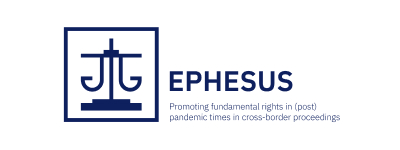
ARISA Child
Assessing the Risk of Isolation of Sentenced and Accused: Enhancing the Capacity of Correctional Services to Work with Convicted Children

Promoting Universal Jurisdiction while Evoking the Crimes Committed within the Former Yugoslavia
Timeframe
05/2024 – 04/2025 (12 months)
Get in touch

NO-OBLIVION “Promoting Universal Jurisdiction while Evoking the Crimes Committed within the Former Yugoslavia” looks back at the conflicts of the former Yugoslavia to, through a victim-centric and jurisprudential lens, preserve the lessons learnt in the aftermath of these conflicts and ultimately safeguard an European legacy of respect for human rights, peace and the rule of law.
To this effect the project will deploy a holistic and intergenerational two-fold approach: by employing a comprehensive awareness-raising campaign directed at younger generations, and further expanded to the general public; and by setting up the groundwork for increasing the knowledge of justice professionals on Universal Jurisdiction and International Criminal Law.

Promote greater intergenerational awareness of the atrocities committed in the conflicts in the former Yugoslavia.
Educate on the relevance of protecting democracy and fundamental rights by exploring the lessons learned from Yugoslavia and the International Criminal Tribunal for the former Yugoslavia.
Lay the groundwork for enhancing the mechanism of universal jurisdiction and strengthen the knowledge of justice professionals and young graduates in international crimes.
Ensure the perpetuation of social justice and redress for the victims of the Yugoslavian conflicts and coming generations.
Promote the rule of law, human and fundamental rights towards more democratic societies devoid of extremism and authoritarianism.
Capacitate judges, prosecutors, and lawyers to act in an efficient and human-centric manner, especially when in contact with International Criminal Law and Universal Jurisdiction.
Integration, within the project, of young graduates and undergraduates from the fields of Law, Criminology, International Relations, History and Sociology to deliver new academic contributions related to the topic.
Host different events such as multigenerational talks, conferences, virtual exhibitions, livestream movie screenings and performing arts showcases.
Develop informative materials: an Academic Journal, a Case-Law Booklet and a guiding infographic for practitioners and academics.

Assessing the Risk of Isolation of Sentenced and Accused: Enhancing the Capacity of Correctional Services to Work with Convicted Children

European Arrest Warrant

Empowerment of the Framework Decisions 2008/947 and 2009/829 through EU Probation Services

Promoting fundamental rights in (post) pandemic times in cross-border proceedings

Ensuring Probationers’ Rehabilitation Prospects via targeted enhancement of the implementation of FD 2008/947

Fair predictions of gender-sensitive recidivism

Implementation of the Stockholm’s Roadmap in cases of terrorism and radicalisation

Ensuring the due course of criminal proceedings via strengthened respect for the procedural rights of the suspect and the accused

Judicial cooperation for the enhancement of mutual recognition regarding probation measures and alternative sanctions – EPP software 3.0